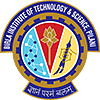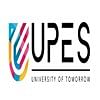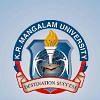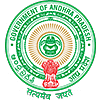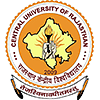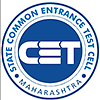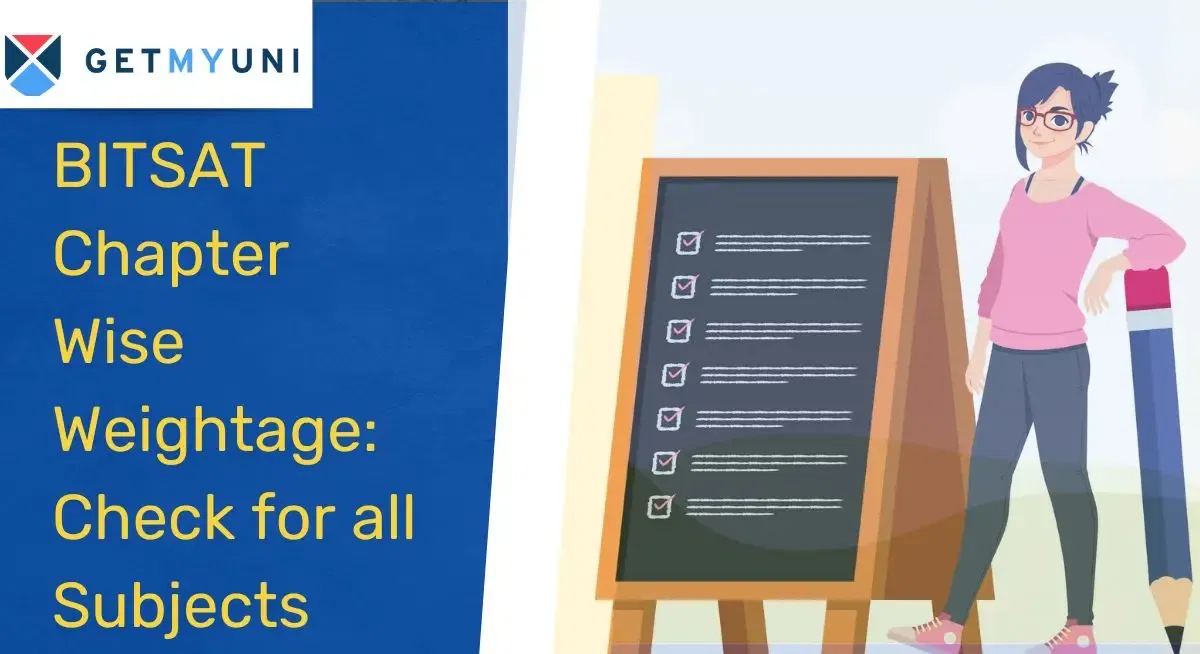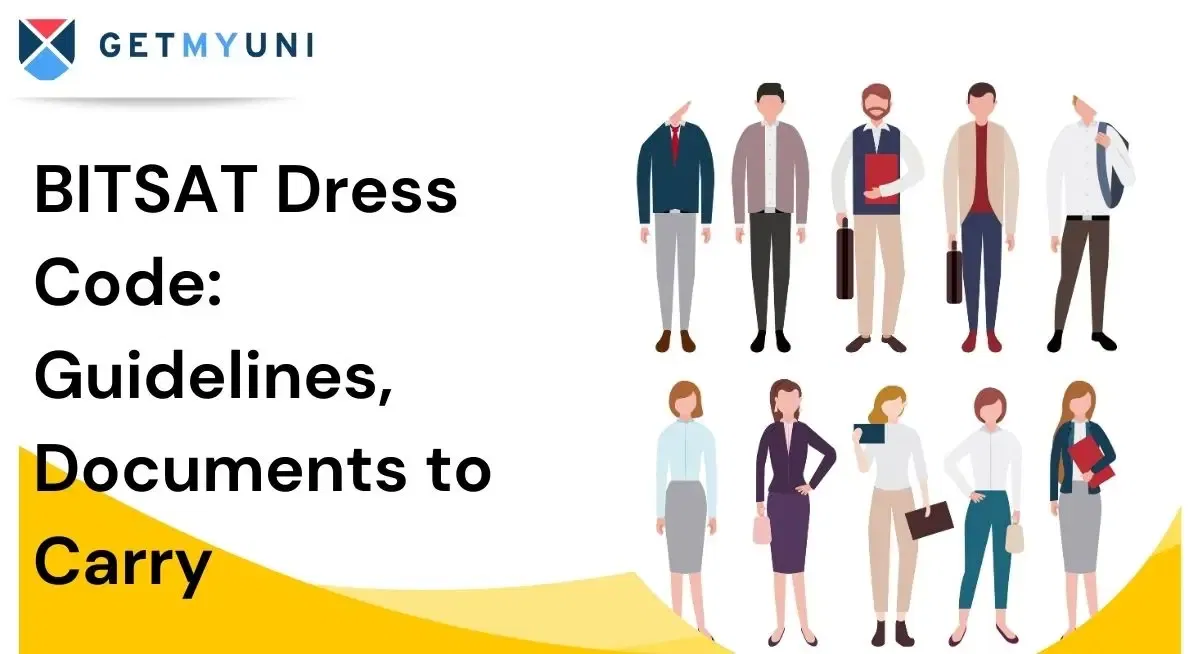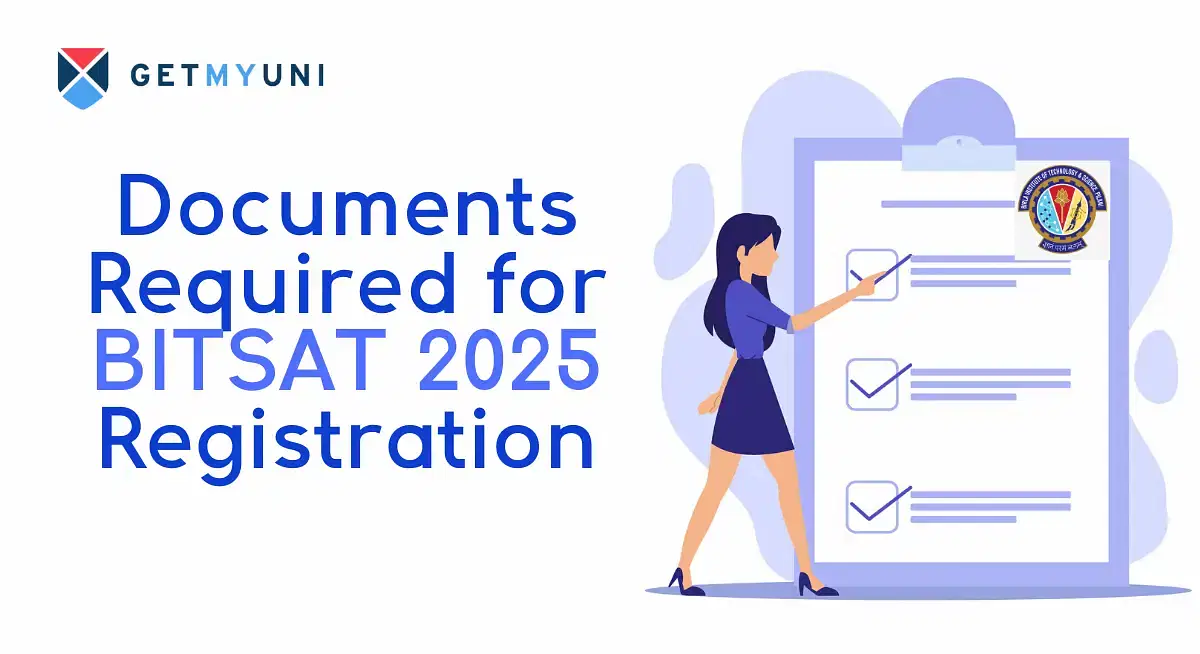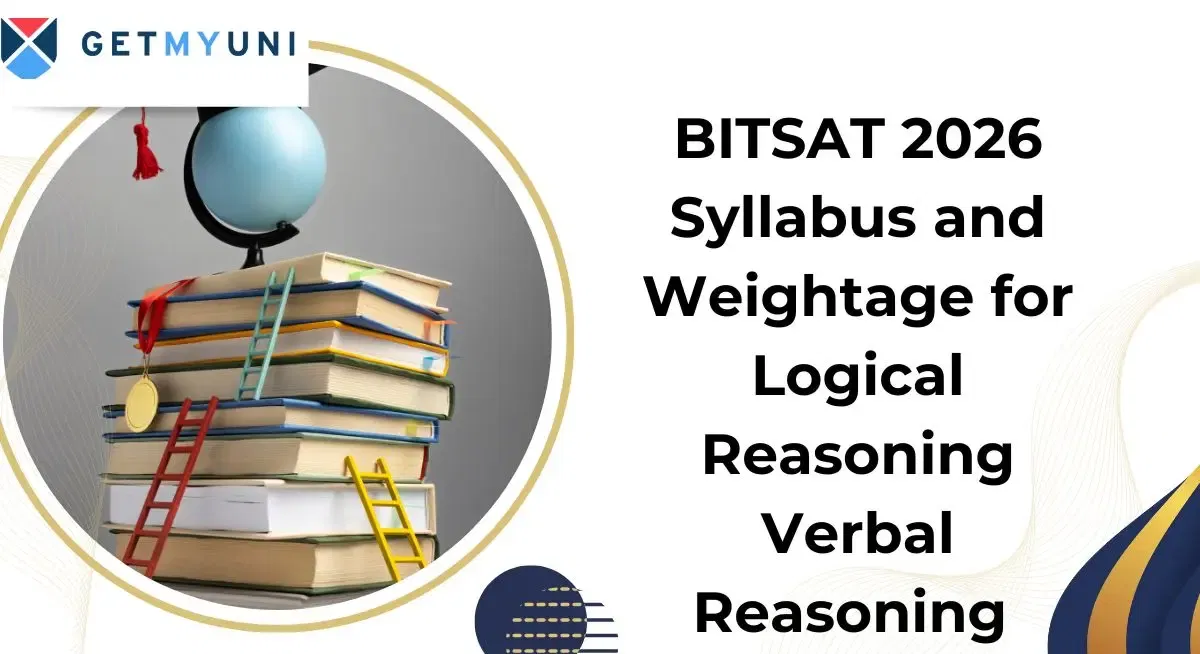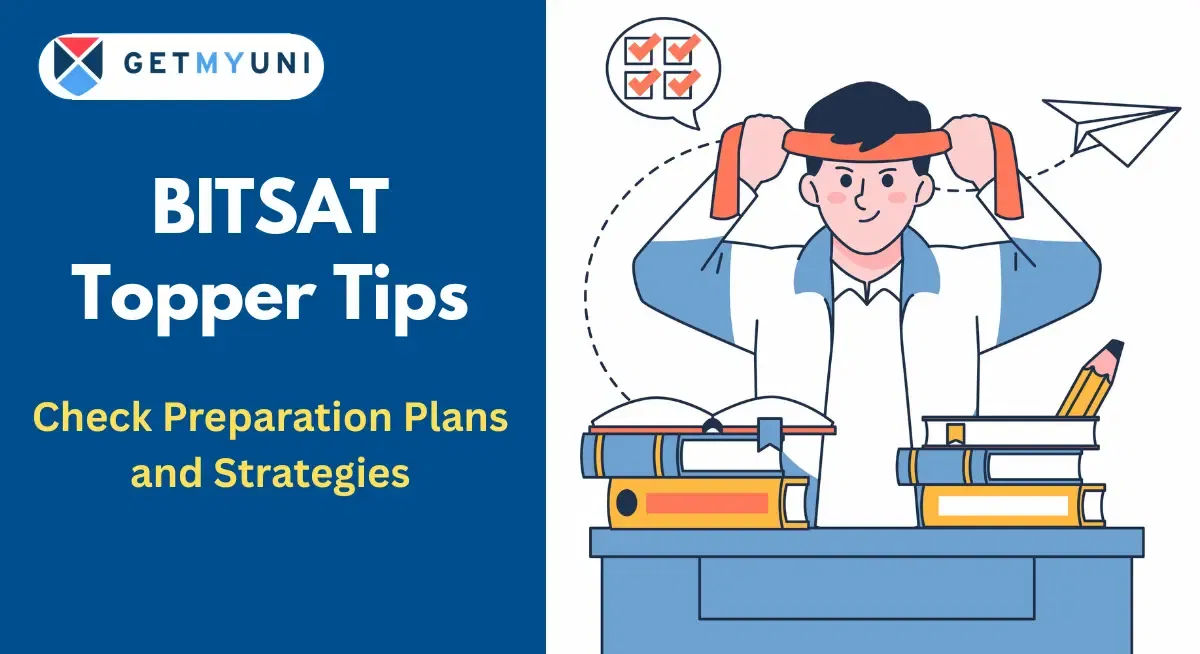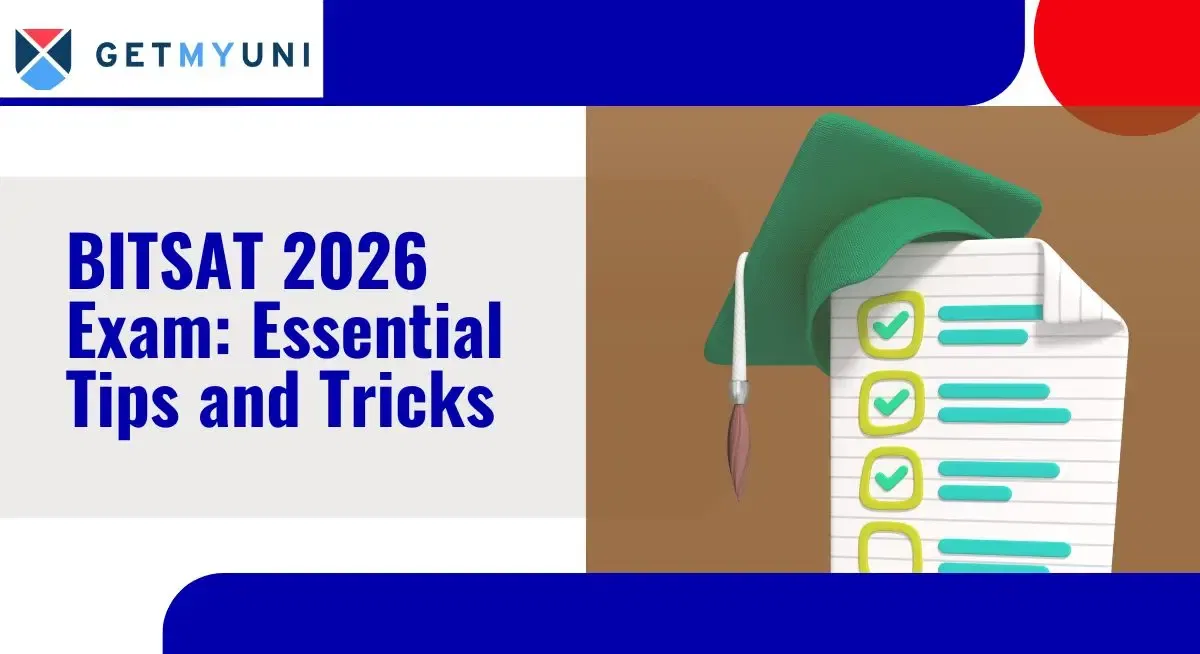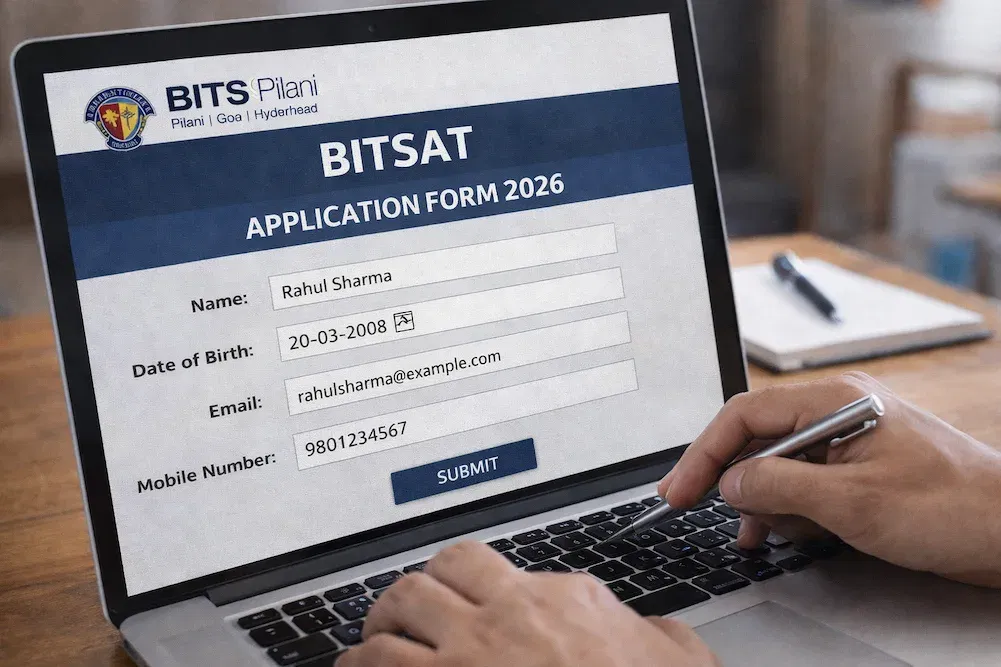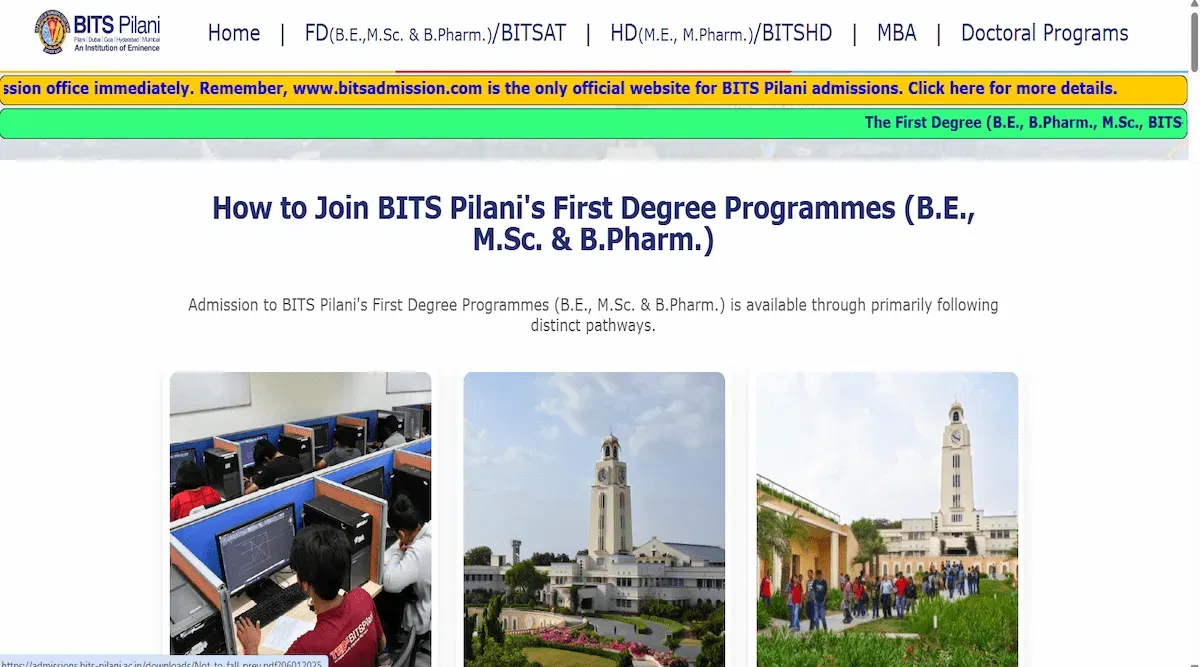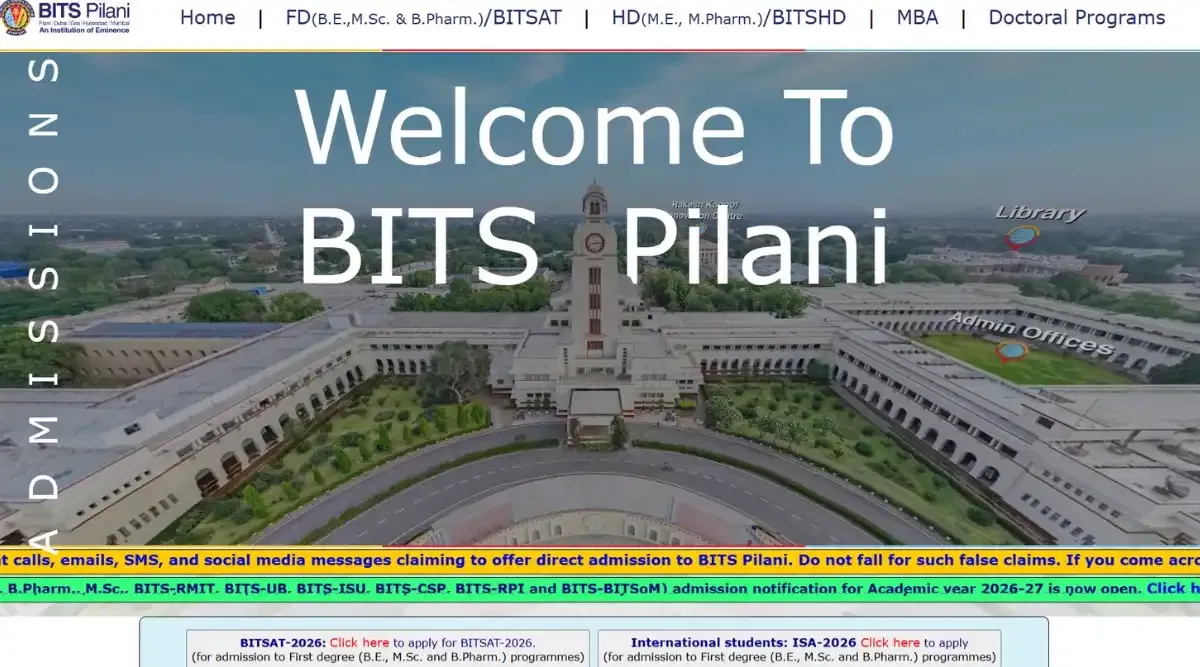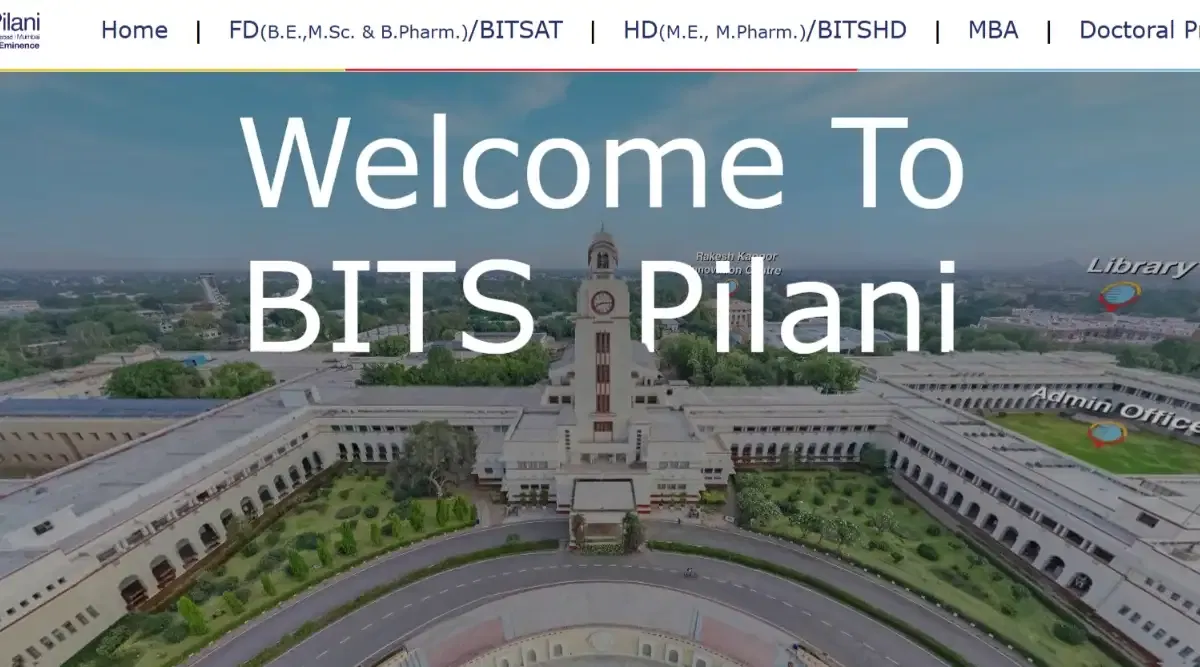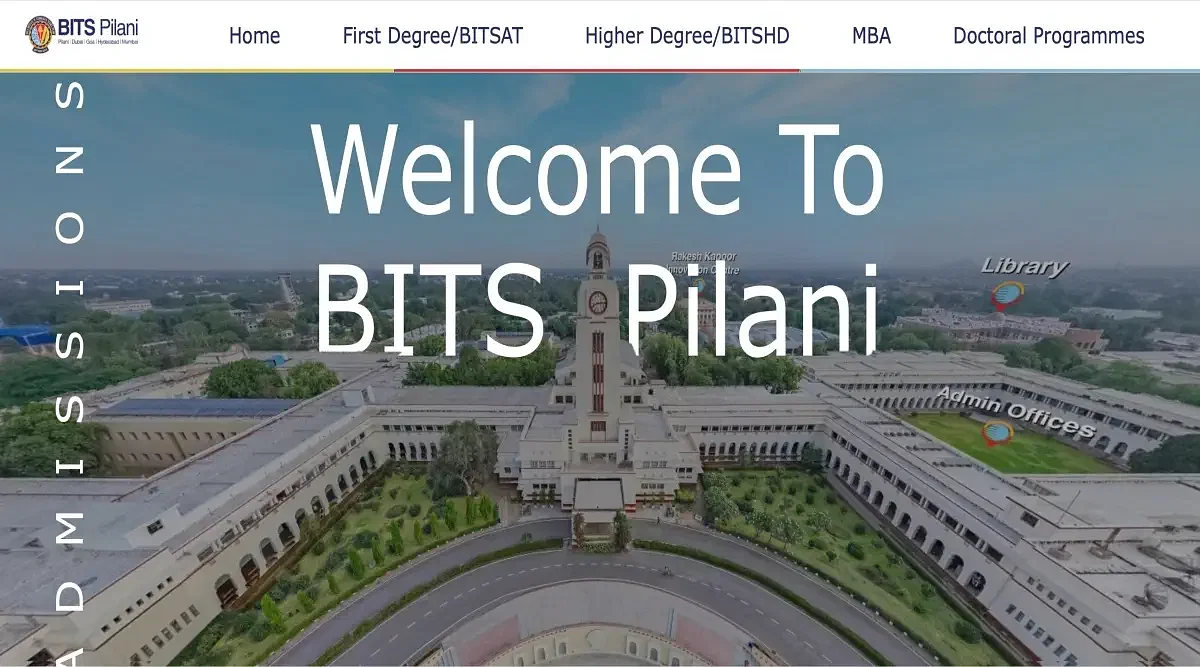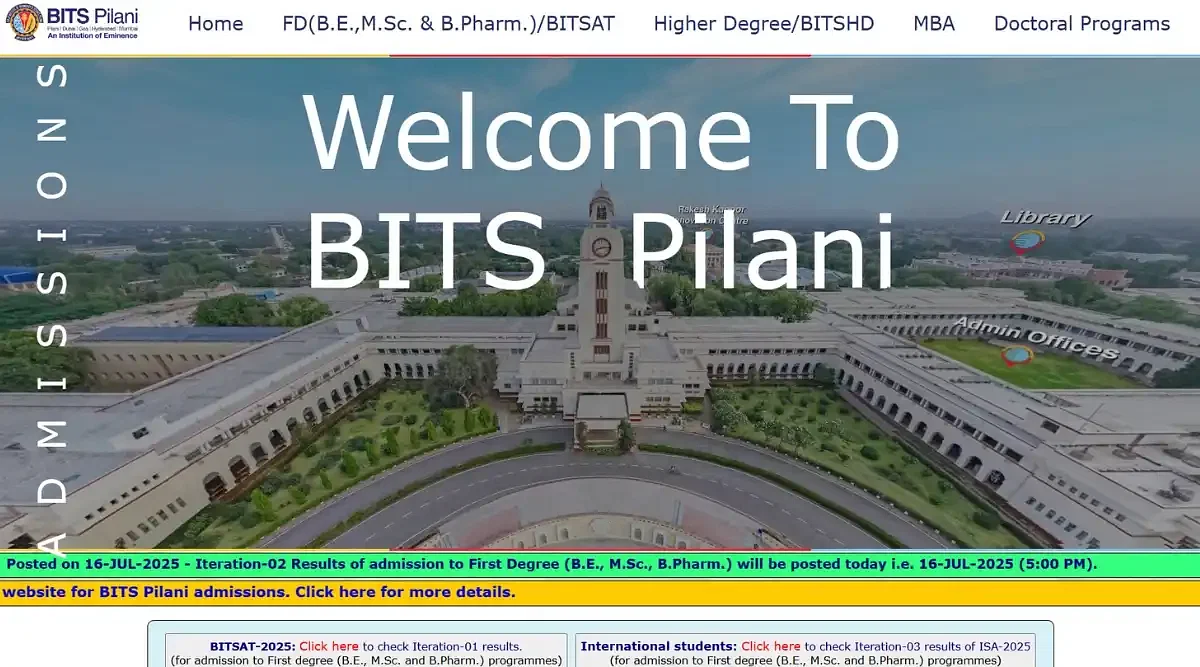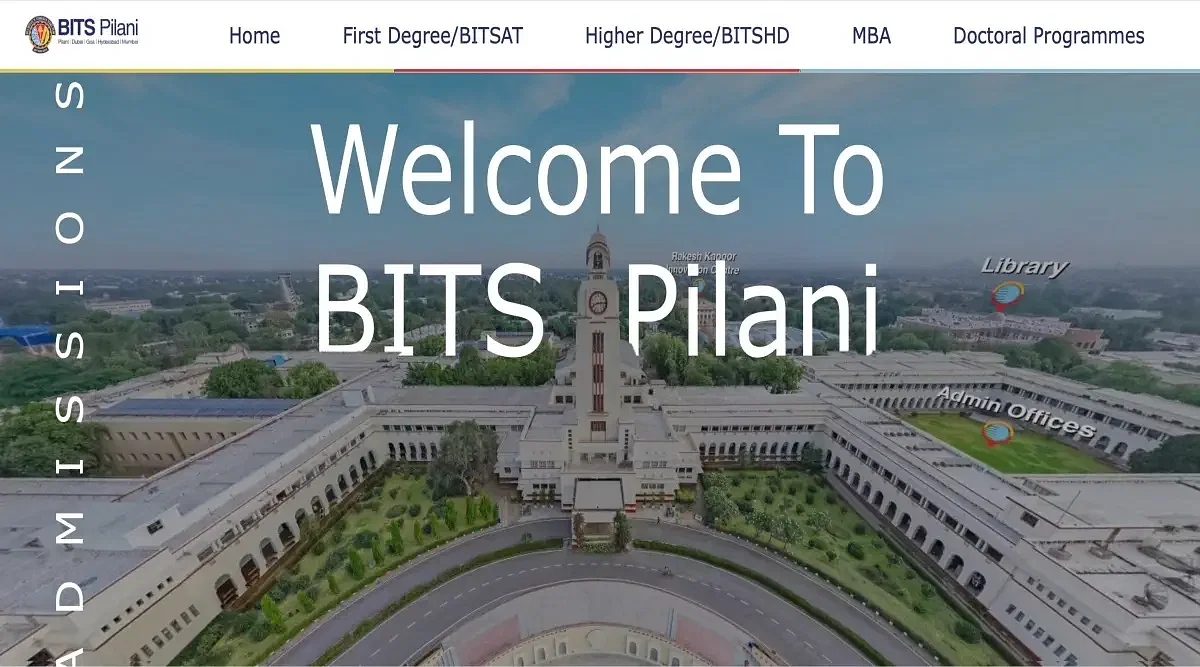
Table of Contents
BITSAT Physics Syllabus 2025 includes important topics such as Kinematics, Law of Motion, Work and Energy, Gravitation, Electrostatics, Current Electricity, Optics, and more. Students can access the BITSAT 2025 Physics Syllabus PDF of the BITSAT Exam from the official website. Students must study the topics in the Physics syllabus thoroughly and practice solving problems based on them to ensure positive results.
The BITSAT Physics Syllabus is based on the NCERT books for Class XI and XII. The difficulty level of the Physics syllabus is moderate-difficult. The detailed topic-wise weightage and important BITSAT 2025 Physics Syllabus topics are provided below.
Download: BITSAT Previous Year Question Paper
BITSAT Physics Syllabus 2025 PDF
Students can access the BITSAT Physics Syllabus 2025 PDF by clicking the link given below. The BITSAT Physics Syllabus PDF contains all the topics that students need to prepare for the BITSAT 2025 exams.
| Download BITSAT Physics Syllabus PDF | Download PDF |
Also Download:
- BITSAT English Syllabus 2025
- BITSAT Mathematics Syllabus 2025
- BITSAT Chemistry Syllabus 2025
- BITSAT Biology Syllabus 2025
BITSAT 2025 Physics Syllabus
The important topics and sub-topics of the BITSAT Syllabus Physics 2025 are given below. Students can review the Physics syllabus topics in detail. Any changes in the BITSAT Physics Syllabus 2025 will be updated below.
- Units & Measurement: Units, Dimensional Analysis, Precision & Significant Figures, Fundamental Measurements in Physics.
- Kinematics: Vectors, Motion With Constant Acceleration,Projectile-Uniform Circular-Relative Motion.
- Newton's Laws of Motion: Newton's Laws, Motion on an Inclined Plane-Blocks With Pulley Systems- Circular Motion, Inertial & Non-inertial Frames.
- Impulse & Momentum: Definition, Conservation of Momentum, Collisions, Momentum of a System of Particles, Center of Mass.
- Work & Energy: Work Done by a Force, Kinetic Energy & Work-Energy Theorem, Power, Conservative Forces & Potential Energy, Conservation of Mechanical Energy.
- Rotational Motion: Rotational Motion With Constant Angular Acceleration, Moment of Inertia, Parallel & Perpendicular Axes Theorems, Rotational Kinetic Energy, Torque & Angular Momentum, Conservation of Angular Momentum, Rolling Motion.
- Gravitation: Newton's Gravitation Law, Gravitational Potential Energy, Escape Velocity, Motion of Planets.
- Mechanics of Solids & Fluids: Pressure, Density & Archimedes' Principle, Elasticity, Viscosity & Surface Tension, Bernoulli's Theorem.
- Oscillations: Forced & Damped Oscillations, Resonance, Kinematics of Simple Harmonic Motion, Spring Mass System, Simple & Compound Pendulum.
- Waves: Doppler Effect, Standing Waves in Strings & Pipes, Progressive Sinusoidal Waves, Superposition of Waves, Beats.
- Heat and Thermodynamics: Thermal Equilibrium & Temperature, Specific Heat, Heat Transfer, Newton's Law of Cooling Work, Heat & First Law of Thermodynamics, Second Law of Thermodynamics, Carnot Engine, Kinetic Theory of Gases.
- Electrostatics: Electric Field, Electric Dipole, Electrostatic Potential & Electrostatic Potential Energy, Gauss' Law, Coulomb's Law, Capacitance & Dielectrics.
- Current Electricity: Electrical Resistance, Ohm's Law, Joule Heating, d.c Circuits.
- Magnetic Effect of Current: Lorentz Force, Force on Current Carrying Conductors in a Magnetic Field, Biot-Savart's Law and Its Applications, Ampere's Law, Magnetic Moment of a Current Loop, Torque on a Current Loop, Galvanometer & Its Conversion to Voltmeter & Ammeter.
- Electromagnetic Induction: Transformers & Generators, Faraday's Law, Lenz's Law, Eddy Currents, Inductance, Generators & Transformers, Alternating Current, Circuits.
- Optics: Reflection & Refraction Laws, Lenses & Mirrors, Optical Instruments, Interference, Diffraction, Electromagnetic Waves, Polarization, Malus' Law, Brewster's Law.
- Modern Physics: Dual Nature of Light & Matter, Atomic Models, Radioactivity, Hydrogen Atom Spectrum, Nuclear Reactions.
- Electronic Devices: Energy Bands in Solids, Conductors, Insulators & Semiconductors, Semiconductor Diode, Transistor & Oscillator, Logic Gates.
Also Read:
Important Topics in the BITSAT Physics Syllabus 2025
Students can prepare for the exam with the following important BITSAT Physics Syllabus 2025 topics. The exam is based on the NCERT syllabus of Class XI and XII level standards.
- Laws of Motion
- Gravitation
- Heat and Thermodynamics
- Electrostatic Potential and Capacitance
- Magnetic Effect of Current
- Ray Optics
- Wave Optics
- Matter and Radiation
- Atom and Nuclei
- Electronic Devices
- Fluid Mechanics
Candidates can get BITSAT Chapter Wise Topics List here.
BITSAT Exam Pattern 2025
The authority will release the BITSAT Exam Pattern 2025 for the exam. The exam is in online mode, with a total of 450 marks, and lasts 3 hours. Each section has 30-40 questions, and candidates can attempt 150 objective-type questions.
Candidates will be awarded three marks for every correct answer, and one mark will be deducted for each incorrect answer.
| Particulars | Details |
| Mode of Examination | Online Mode |
| Question Type | Objective type |
| Number of Questions | 180 questions |
| Number of Question from Physics | 30 questions |
| Marking Scheme |
+3 for each correct answer -1 for each incorrect answer |
| Duration | 3 hours |
BITSAT Physics Weightage 2025
To perform well in the BITSAT exams, students must know the weight of the topics in the Physics syllabus. A higher weightage implies that the topic has a higher chance of appearing in the questions.
The topic-wise BITSAT Weightage 2025 for Physics is detailed below. Students must study these topics and not skip any topic that has a high weight.
| BITSAT Physics Topics | Weightage |
| Heat and Thermodynamics | 10% |
| Magnetic Effect of Current & Magnetism | 9% |
| Wave Motion | 6% |
| Current Electricity | 6% |
| Electrostatics | 5% |
| Simple Harmonic Motion | 5% |
| Wave Optics | 5% |
| Fluids | 5% |
| Rotational Motion | 4% |
| Work, Power & Energy | 4% |
| Elasticity | 4% |
| Ray Optics | 4% |
| Units, Dimension, Errors | 3% |
| Gravitation | 3% |
| Alternating Current | 3% |
Books for BITSAT Physics Preparation
The syllabus for the BITSAT exam is based on NCERT syllabus of Class XI and XII. Therefore, candidates must study from the NCERT textbooks. The NCERT Physics textbooks can be accessed from the links provided below.
In addition to NCERT textbooks, other reference books, such as Concepts of Physics by H.C. Verma, are useful for building basic concepts. Books like Problems in General Physics by I.E. Irodov and Objective Physics are great for reference. Below is a list of some of the best books for BITSAT Physics exam preparation.
| BITSAT Physics Books | Author |
| Concepts of Physics | H.C. Verma |
| Concepts of Physics | S.S. Krostov |
| Advanced Level Physics | Nelson and Parker |
| Fundamentals of Physics | V.K. Mehta |
| Objective Physics | Pradeep |
Candidates can download the entire list of BISAT Books 2025 here.
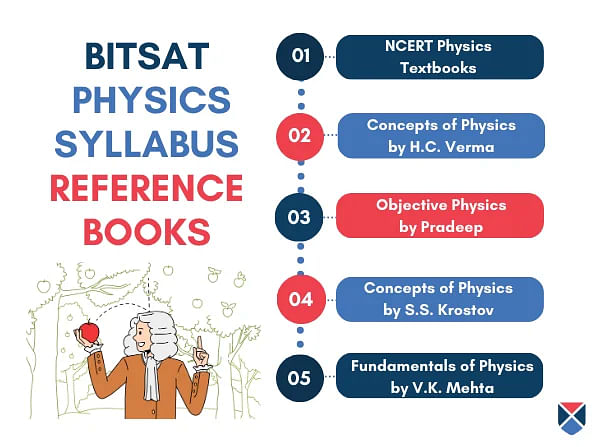
Preparation Tips for BITSAT Physics Syllabus 2025
Candidates should remain consistent and focused while preparing for the exam. Students can follow the tips given below to prepare for the BITSAT exam.
- Understand the exam pattern and BITSAT syllabus 2025.
- Work out a study plan that is realistic and practical. Ensure there is enough time to cover the BITSAT Physics syllabus thoroughly.
- Focus on application based problem-solving to grasp concepts and improve problem solving skills necessary for numerical problem solving.
- Take BITSAT specific mock tests to simulate exam conditions. Work on time management
- Analyze physics sections from the previous year’s question papers to identify recurring problems and topics.
- Solve the BITSAT question papers and attempt sample papers to increase familiarity with the exam pattern and structure.
- Students are advised to understand the underlying concepts of formulas instead of just memorizing them.
- Revise regularly to reinforce concepts and improve retention of the studied material.
Quick Links:
| BITSAT Mock Test 2025 | How to Crack BITSAT 2025? |
| How to Prepare for BITSAT from Class 11? | BITSAT Important Topics 2025 |
